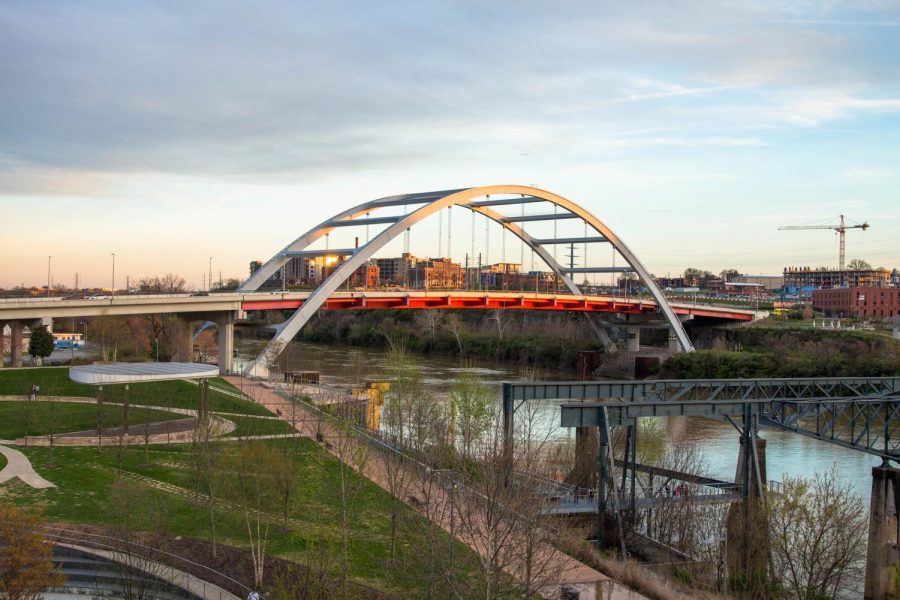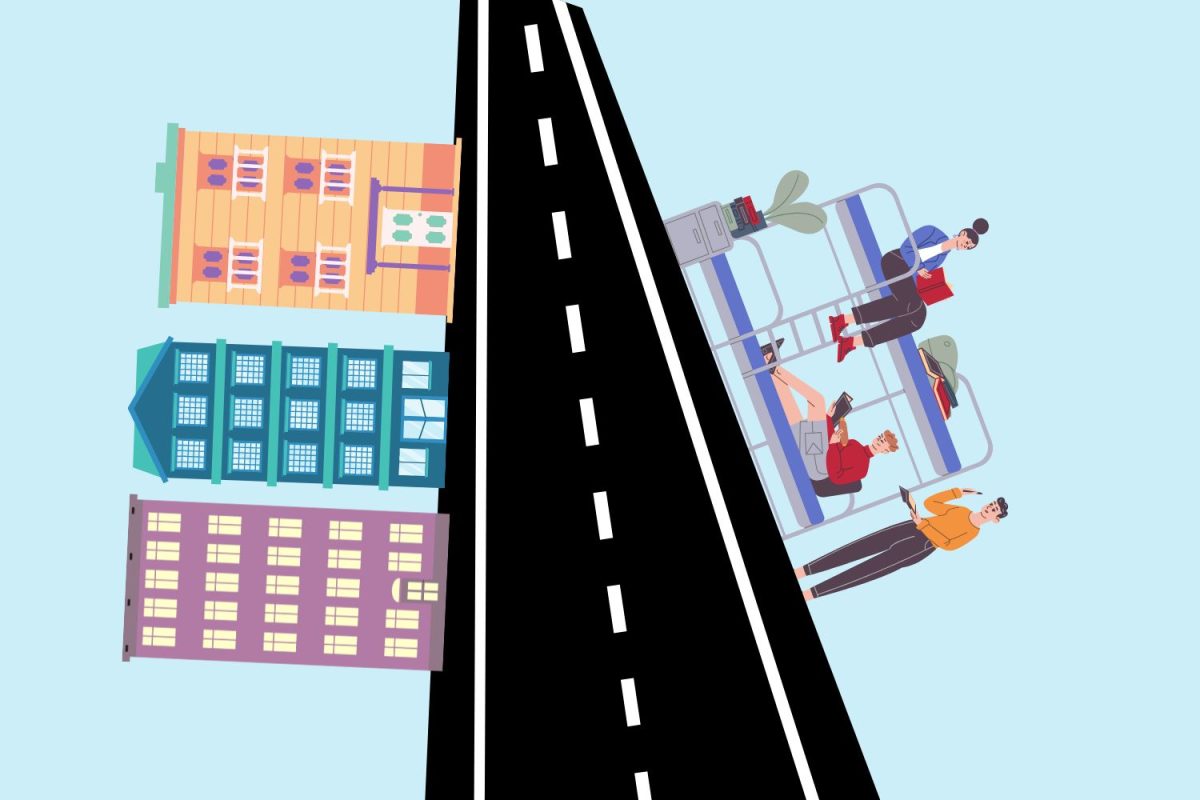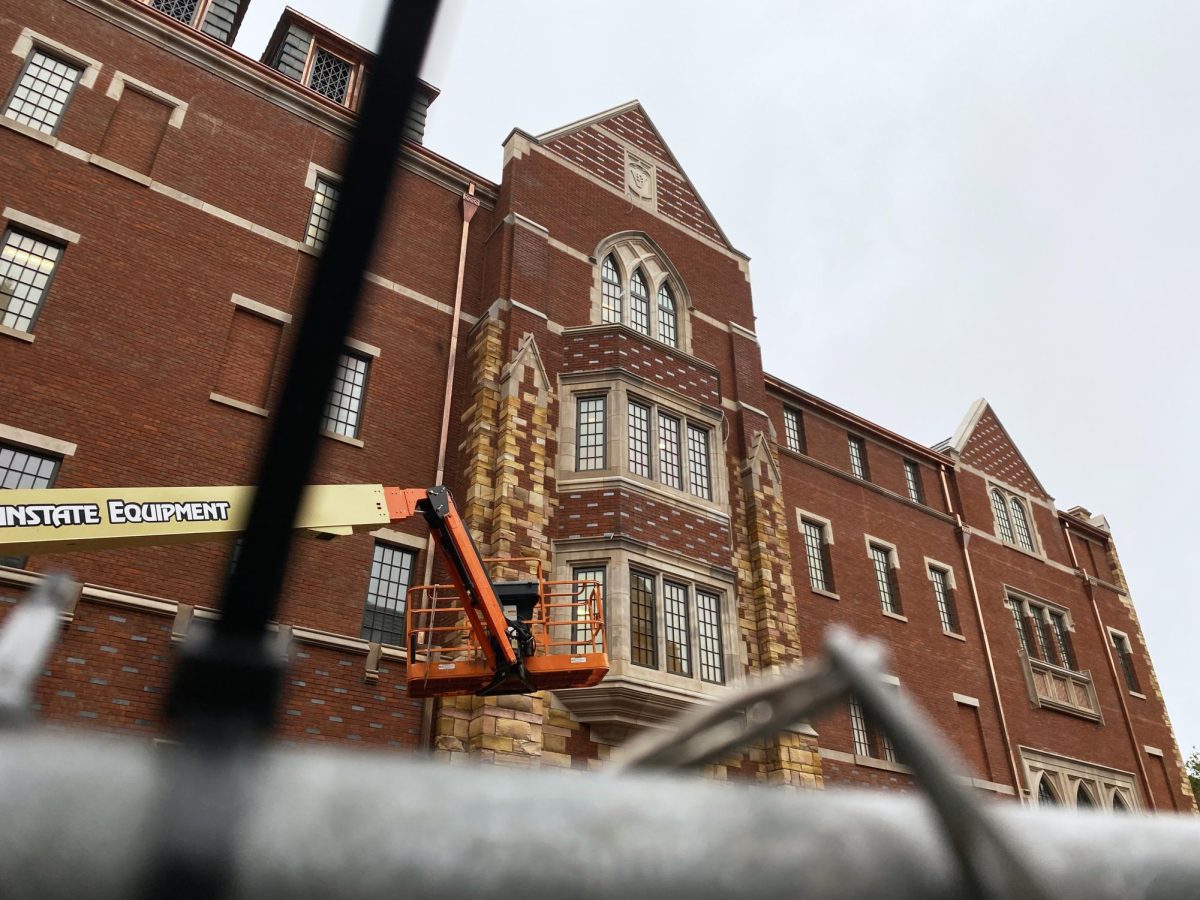Vanderbilt announced its plan June 17 to begin in-person classes Aug. 24 and conclude classes Nov. 20, with the last week of classes and final exams being held online through Dec. 13.
Along with the decision to finish in-person instruction before Thanksgiving break, Vanderbilt also announced a slew of policies that adjust class scheduling, housing assignments and dining norms to promote campus safety and reduce the risk of COVID-19 spread.
“Student life on campus is an important part of the college experience,” the Vanderbilt Return to Campus website reads. “There is no denying that the ways in which we live, learn, interact and study will continue to evolve and change in the coming months. Many of these experiences will be new for all of us, and we fully understand that the dynamics of the fall semester may not be what any of us would desire or expect.”
The Hustler broke down aspects of the announcement that will impact students’ lives in the coming semester.
1. Classes
Classes may look a bit different in the coming semester. Vanderbilt said that not only may some classes be partially or fully online, but for all in-person classes, class density has also been reduced to make sure that students can social distance. Deans will share other specific protocols on July 1.
Classes may also take place in the evenings or during weekends. Additionally, class schedules will be adjusted so that students can have more than ten minutes per passing period, which accounts in part for changes such as roundabouts and one-way sidewalks.
If students wish to study remotely, they must fill out an application on the YES landing page by June 26. Students who opt for remote-only study will still have to pay the Student Services Fee.
2. Food/Dining
Campus Dining is currently in Phase 2, which means that walking into Rand Hall is no longer an option. Instead, students remaining on campus order meals through the GET app one day in advance and pick it up during a specific time slot during the day. Times can be found under the “Are Campus Dining facilities open?” tab on the Return to Campus website. You can also choose mobile pickup at locations such as Suzie’s Cafe and Munchie Marts.
Eating at Nicholas S. Zeppos College will be an option starting in August. Not only will Zeppos be available, but a rotating list of food trucks will also be hosted on campus where students can use Meal Money and Commodore Cash to order food.
At other locations, first-years can use one of their meals from their 21 Plan, sophomores and juniors can use meals from their 19 Plans and seniors can use meals from the 14 Plan. This contrasts with last year’s meal plan requirements. Last year, on-campus seniors had to purchase at least an 8-meal plan, on-campus juniors had to purchase at least a 14-meal plan and sophomores had to purchase at least a 19-meal plan. First-years have always had to purchase a 21-meal plan.
Students living off-campus or going remote can purchase a meal plan, just as off-campus residents could last year, but Vanderbilt will not require that purchase. Nonresidential students can also purchase flex meals redeemable at any Campus Dining location. Additional information about Campus Dining will be uploaded to the website on July 1 and will include information about seating options and set-up in Campus Dining facilities.
3. First-year Housing
In previous years, first-years lived on Commons with a roommate for the entire academic year.
This year, first-year students will be randomly assigned a single room in one of the following locations: Martha Rivers Ingram Commons, Branscomb Quadrangle or Carmichael Towers East. First-years will switch their housing assignments during the transition to the spring semester in order to allow all first-years the opportunity to live on Commons.
First-years will still be assigned a Commons house affiliation and Faculty Head of House. They will also be paired up with a “virtual” roommates.
4. Residential Building Restrictions.
In previous years, students could access some residence halls that they did not live in, with restrictions in place on some gendered floors.
Students will now only have access to their assigned residential building and floor. In addition, students will no longer be able to have overnight visitors.
Common areas, study spaces and lounges will still be open, but the furniture will be spaced out in accordance with health and safety guidelines. Shared kitchen areas will be closed due to apparent challenges in sanitation
5. Student Organizations/Meetings
Student organizations will need to modify operations to meet campus policies and protocols, and the use of common areas will be restricted. While student groups will still be able to reserve space for meetings, the university expects that space will be more limited. The university is asking that meetings be held through virtual platforms when feasible and will be working with student organizations to plan events, activities and online engagement strategies.
Phase 2 of the university’s Return to Campus Plan allows gatherings of up to ten people as long as there is room for social distancing to be observed and safety protocols, like wearing face masks, are followed. A formal definition of “gatherings” will be available July 1, and changes to gathering size restrictions will be made available as operations start ramping up prior to the start of the semester.
Vanderbilt’s Return to Campus Plan Phases 3 and 4 guidelines currently read “May change gathering guidelines. Gathering size restrictions will be communicated as we ramp up.”
6. Campus Programming/Events
Some of the highlights of typical fall semesters include kicking off the year with the Founder’s Walk, watching the first-years run across the football field for Anchor Dash and attending concerts like Lights on the Lawn and Commodore Quake. This year, in-person meetings and social events on and off campus will be restricted, and residential programming will be modified for virtual and alternative formats.
Student life professionals are working with students to find ways to build community and design programming while following all of the distancing protocols and guidelines in the Return to Campus Plan. Virtual sing-a-longs, board game tournaments, watch parties and meals are some of the programming ideas being developed.
7. Libraries/Bookstore/Post Office Station B
In-person library services are not yet open for students. In Phase 2, the university is currently expanding pick-up and drop-off services for faculty who cannot access digital materials. Vanderbilt is also preparing for researchers to be granted in-person access, which will happen in Phase 3.
Everyone visiting the West End Barnes & Noble at Vanderbilt bookstore must wear a mask/covering. Those who are sending or receiving packages at Post Office Station B must also wear a mask/covering.
Signage and decals will signal distancing guidelines in the bookstore and post office.
8. Athletic Events
There are many questions that must be addressed before Vanderbilt football kicks off its season opener against Mercer on September 5; Will fans be in attendance? If so, at what capacity? Will players be forced to quarantine if they leave Nashville for nonathletic reasons? If a player on any team tests positive for COVID-19, thus exposing the rest of the roster, will the whole program have to quarantine for two weeks? If that’s the case, would Vanderbilt have to forfeit games?
Some of these questions will hinge on decisions made by the Southeastern Conference. Others will rely heavily on Tennessee state legislation. As it stands, very few details are certain except that the fan experience will look nothing like it has in the past.
9. No Fall Break/Travel.
Vanderbilt will not have a Fall Break in the 2020-21 academic year. Fall Break, originally scheduled for Oct. 22-23, presented students with an opportunity to return home prior to Thanksgiving Break. Instead, students are being asked to stay on campus until Thanksgiving, after which they will not return to campus.
Vanderbilt also asks that students remain in the Nashville area and mitigate travel until they are released for Thanksgiving Break on Friday, Nov. 20.
While student-athletes are presumably exempt from this ruling, the rest of the student body is being encouraged to stay in Nashville for the duration of the semester. It remains unclear if there will be any mechanisms to enforce the rule.
10. Nashville
Like any other city, Nashville is not immune to the effects of COVID-19; the health of residents, sustainability of small businesses and reopening of the city have all been affected by the spread of the virus.
On June 16, Tennessee’s coronavirus hospitalizations reached its highest level to date. The article cites a Vanderbilt study that roughly 400 residents were hospitalized from June 7 to June 13, a rise of nearly 30 percent from the prior week. Many of the new hospitalizations, according to the study, can be attributed to a rise in cases in both Memphis and Chattanooga.
In addition to health concerns, small businesses have dealt with economic concerns of their own. Many local businesses were forced to close permanently in light of city-wide shutdowns. Other businesses, like Cafe Coco, temporarily closed their doors to prepare for rebranding. Tennessee Governor Bill Lee announced the launch of a new relief program on June 2, hoping to revive some of the struggling businesses.
Nashville is currently in Phase 2 of its four-phase plan to reopen, which permits some businesses to operate at 75% capacity. Mayor John Cooper announced on June 18 that the city would advance to Phase 3 on Monday, June 22. This transition will grant businesses with a bit more freedom; one significant change allows for bar seating at half capacity, a service banned during Phase 2.
After reports that 15 businesses have been cited for violations of the city’s COVID-19 laws, four Broadway bars—Moxy Nashville Downtown, Kid Rock’s Big Honky Tonk and Steakhouse, Broadway Brewhouse and Nudie’s Honky Tonk—saw their beer permits temporarily suspended on June 18 for serving patrons at the bar during Phase 2.


















